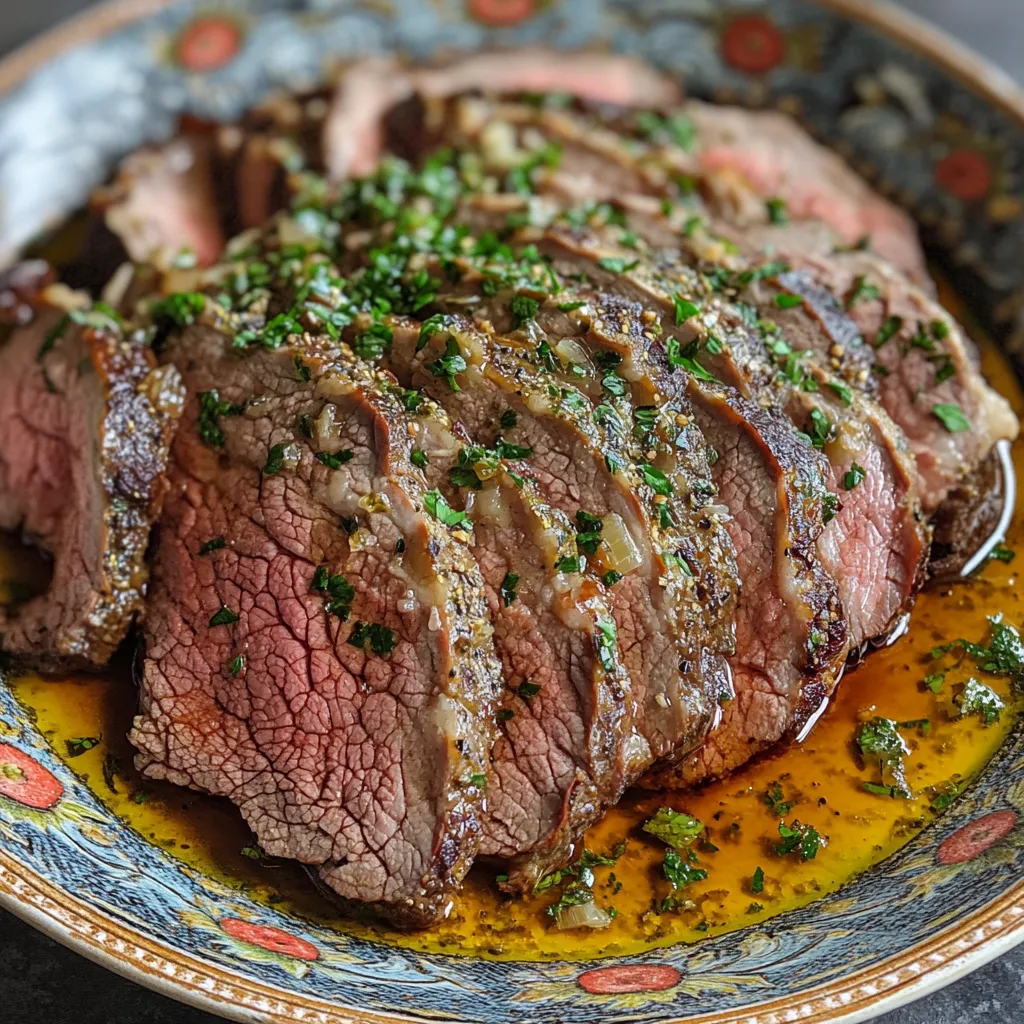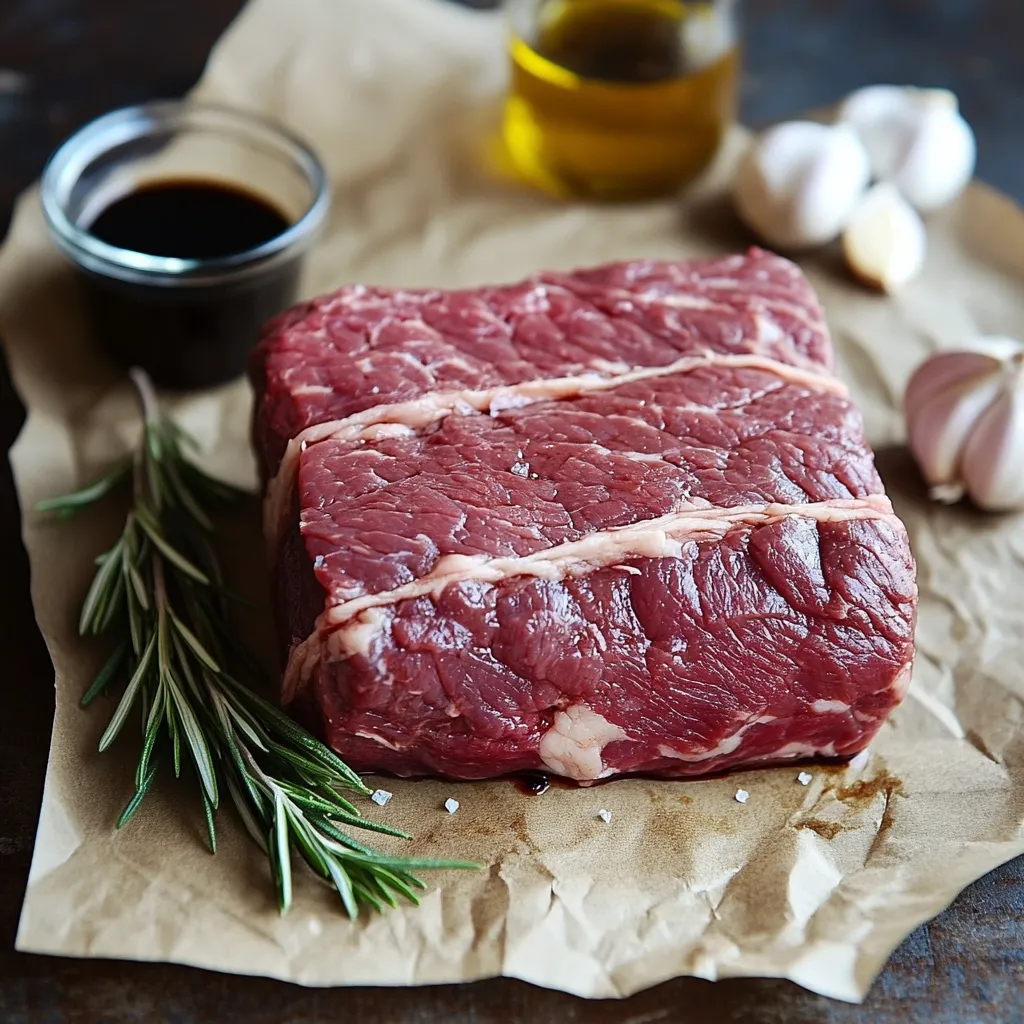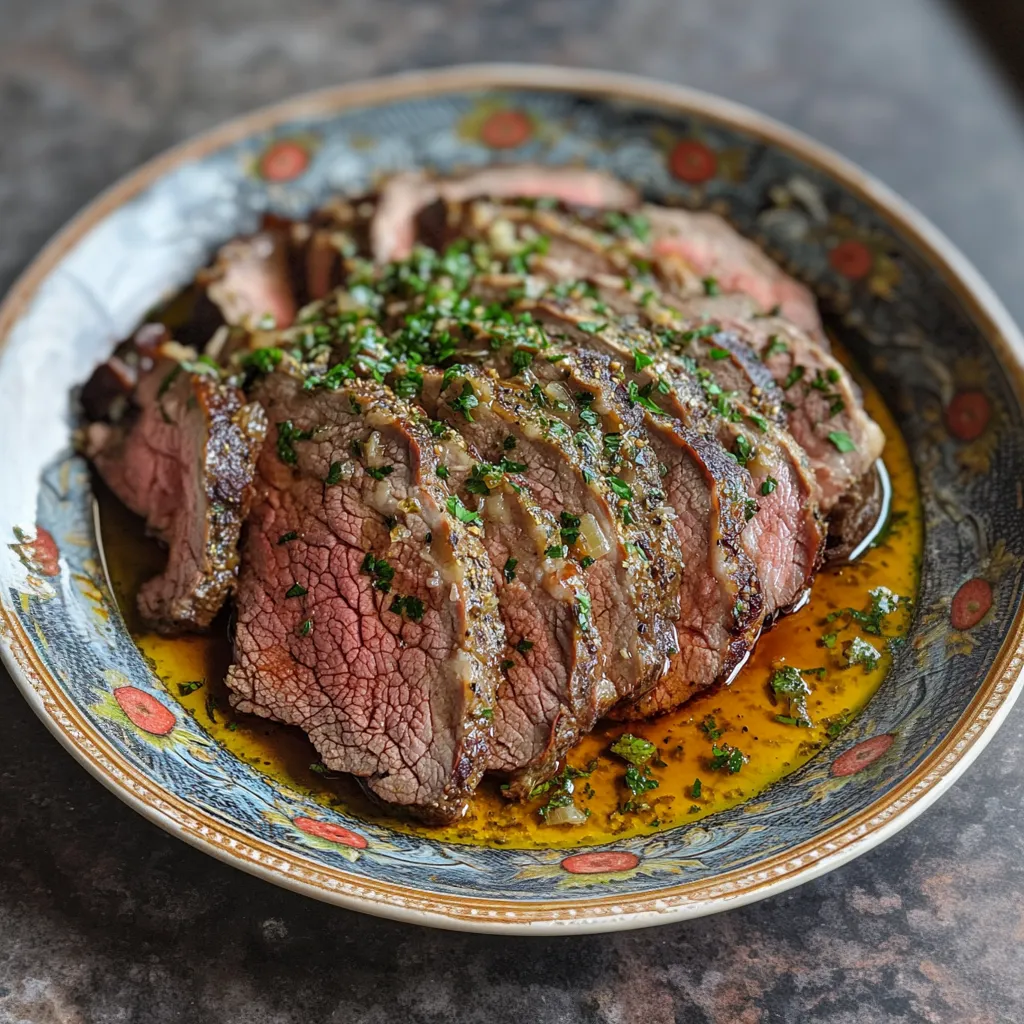 Add to Favorites
Add to Favorites
This slow cooker roast beef transforms an affordable cut of meat into a tender, succulent centerpiece worthy of Sunday dinner. The simple combination of fresh rosemary and garlic creates an irresistible aroma that fills your home while the beef cooks to perfection with minimal hands-on time.
I discovered this method years ago when looking for ways to make tougher cuts of beef more tender. Now it's my go-to whenever I'm hosting family dinners but need to be away from the kitchen most of the day.
Ingredients
- 2 pound eye of round beef roast: Gives you the best texture and flavor for slow cooking
- Olive oil: Helps the seasonings adhere and aids in browning
- Fresh rosemary stalks: Provide aromatic earthy flavor that dried simply cannot match
- Minced garlic: Infuses the meat with depth; look for firm heads with tight skin
- Sea salt: Enhances all the flavors and helps form that beautiful crust
- Fresh ground pepper: Adds subtle heat and complexity
- Balsamic vinegar: Creates acidity to balance the richness and helps tenderize
Step-by-Step Instructions
- Prepare the roast:
- Begin by patting the roast dry with paper towels then massage olive oil all over the surface to create a base for the seasonings to stick to.
- Create the seasoning blend:
- Remove the rosemary leaves from the woody stems by pulling against the grain then finely chop them. Mix with minced garlic, sea salt, and freshly ground pepper until well combined.
- Season the meat:
- Apply the seasoning mixture liberally all around the roast pressing gently so it adheres and forms a flavorful crust. Make sure to cover all sides evenly.
- Sear to perfection:
- Heat your skillet or multicooker to 400°F until quite hot. Place the seasoned roast in and let it sear undisturbed for about 4 minutes per side. You want a deep golden crust to develop as this creates incredible flavor.
- Create the cooking liquid:
- Once all sides are beautifully browned pour balsamic vinegar into the hot pan. It will sizzle immediately, scraping up all those flavorful browned bits from the bottom of the pan.
- Slow cook to tenderness:
- Transfer everything to your slow cooker including all the pan juices. Cover with the lid and set to low for 8 to 9 hours. The long slow cooking process allows the tough connective tissues to break down completely.
- Rest before slicing:
- Remove the finished roast and let it rest on a cutting board or platter for at least 15 minutes up to 30 minutes. This allows the juices to redistribute throughout the meat for maximum tenderness.
- Slice and serve:
- Cut against the grain into thin slices using a sharp knife. Spoon some of the cooking liquid over the slices before serving.

My absolute favorite part about this recipe is the aroma that fills my house while it cooks. Something about the combination of rosemary and garlic reminds me of Sunday dinners at my grandmother's house. She always said a good roast beef should be cooked slowly with patience and this recipe honors that tradition perfectly.
Perfect Pairings
This roast beef pairs beautifully with classic sides like mashed potatoes or roasted vegetables. The rich cooking liquid makes an excellent gravy for potatoes simply strain it and thicken with a bit of cornstarch if desired. For a complete meal I often serve this with glazed carrots and Yorkshire puddings when hosting a special dinner.
Making Ahead and Storage
This roast beef actually improves with a day of rest in the refrigerator making it perfect for meal prep. After cooking allow the meat to cool completely then refrigerate in its cooking liquid to keep it moist. When ready to serve reheat gently in a covered dish with some of the cooking liquid to prevent drying out. The meat will stay good for up to three days refrigerated or can be frozen for up to three months in airtight containers.
Choosing The Right Cut
While this recipe calls for eye of round you can substitute other affordable cuts like chuck roast, bottom round, or rump roast. Each cut has slightly different characteristics; eye of round is leaner while chuck has more marbling. For maximum tenderness look for cuts with good marbling throughout the meat which melts during the long cooking process creating pockets of moisture and flavor.

Recipe FAQs
- → What cut of beef works best for this slow cooker method?
Eye of round or rump roast are ideal cuts for this slow cooking method. These leaner cuts benefit from the low, slow cooking process which breaks down tough muscle fibers, resulting in tender meat. You could also use chuck roast for a more marbled result.
- → How do I know when the roast beef is properly cooked?
While the internal temperature should reach 145°F for medium doneness, with slow cooking, tenderness is a better indicator than temperature alone. The meat should be fork-tender. If it's still tough after the recommended cooking time, continue cooking until it's easy to shred (usually around 205°F).
- → Can I add vegetables to cook with the roast?
Yes! You can add onions, carrots, and potatoes to the slow cooker for a complete one-pot meal. Place heartier vegetables like carrots and potatoes at the bottom of the slow cooker (under the roast) so they cook properly in the released juices.
- → What's the purpose of searing the meat before slow cooking?
Searing the meat before slow cooking creates a Maillard reaction—a process that caramelizes the exterior of the meat, developing rich flavors and creating a more appealing color. While not strictly necessary, this step significantly enhances the final flavor profile.
- → How can I use the leftover cooking liquid?
The leftover cooking liquid makes an excellent base for gravy. Simply strain it, skim off excess fat, then thicken with a cornstarch slurry (mix 1 tablespoon cornstarch with 2 tablespoons cold water) while heating in a saucepan. You can also use it as a flavorful base for soups or stews.
- → Why is resting the meat important?
Resting the meat for 15-30 minutes after cooking allows the juices to redistribute throughout the roast. If you slice it immediately, these flavorful juices will run out onto your cutting board instead of remaining in the meat, resulting in drier slices.
